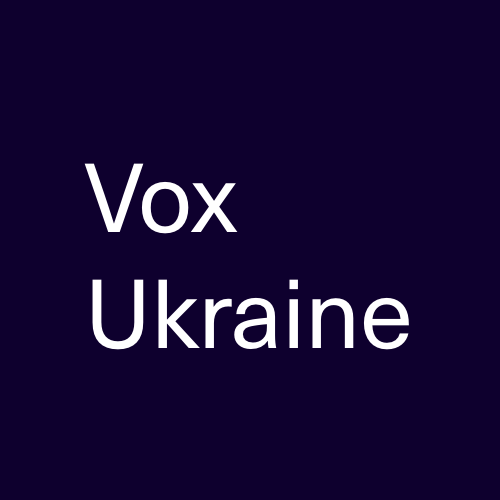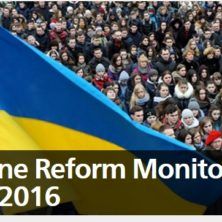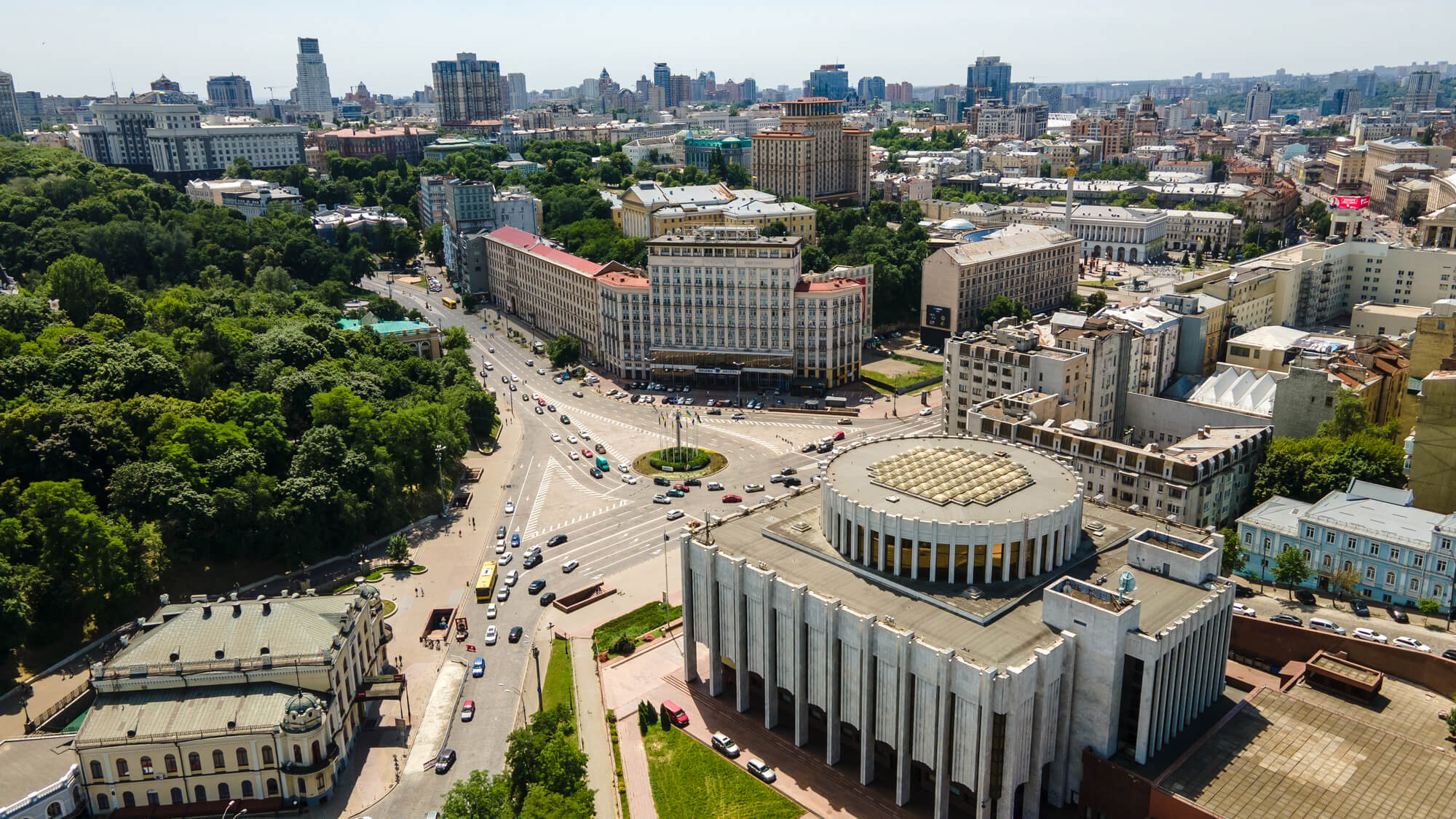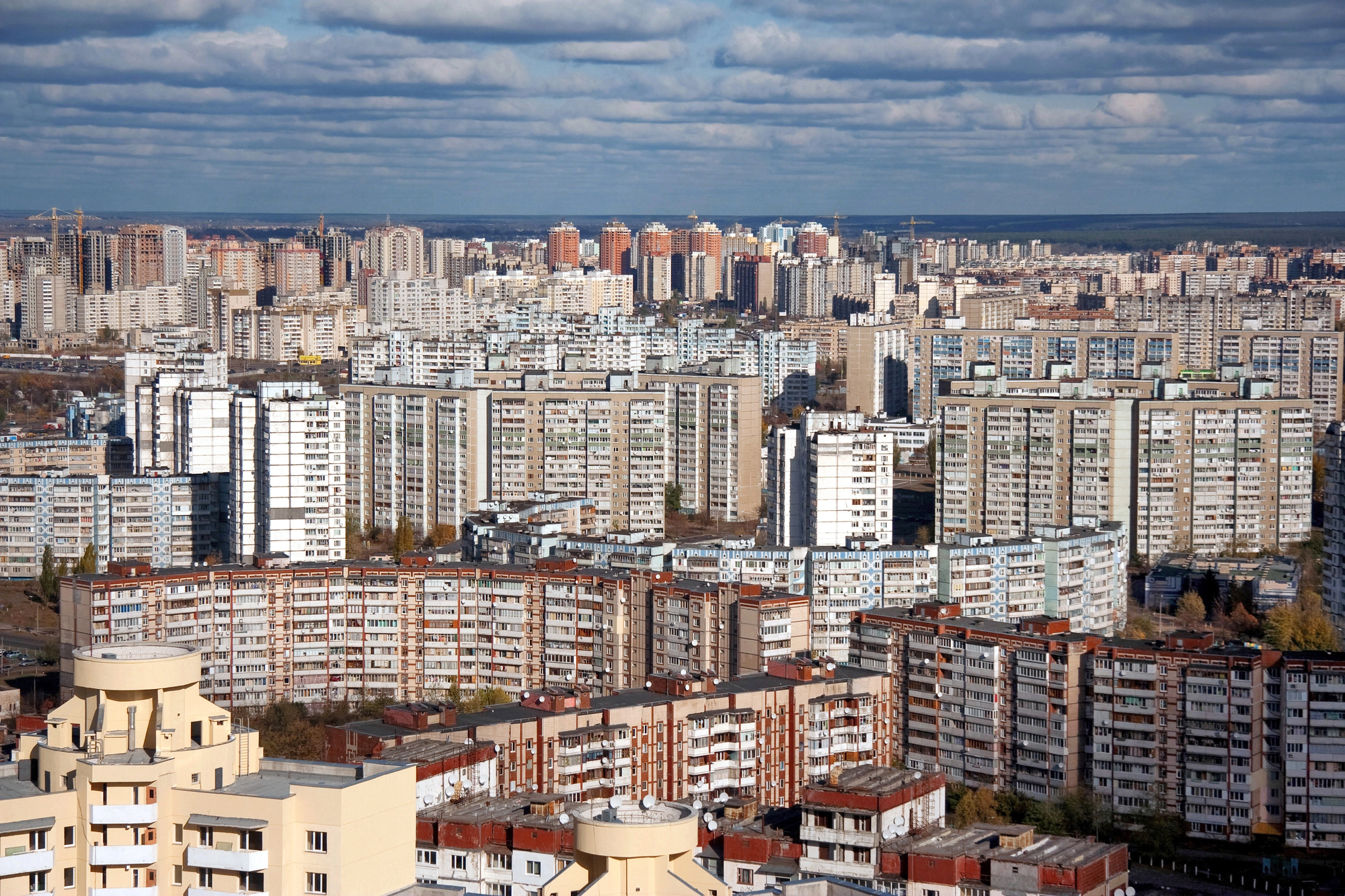The Ukraine Reform Monitor provides independent, rigorous assessments of the extent and quality of reforms in Ukraine. The Carnegie Endowment has assembled an independent team of Ukraine-based scholars to analyze reforms in four key areas. This fifth memo covers the period from mid-February to mid-April 2016. The monitor is supported in part by a grant from the Open Society Foundations. At the start of 2016, Ukraine plunged into a major political crisis that paralyzed both the executive and the legislative branches. The governing reform coalition that was propelled to power in 2014 came apart, torn by long-simmering rivalries and mutual accusations of corruption.
The consequences for Ukraine have been severe. The IMF had been holding up a package of financial assistance even before the crisis erupted, and the government paralysis has created a standoff until Kyiv demonstrates its commitment to, in the words of IMF Managing Director Christine Lagarde, “improving governance and fighting corruption, and reducing the influence of vested interests in policymaking.” Although a new prime minister has been appointed and a new coalition formed, the government’s reformist reputation has been dealt a serious blow, and the country’s image abroad has been tarnished. Ukraine’s supporters now have a much harder task before them to make the case for EU financial and technical assistance. Ukraine is in danger of repeating its experience after the 2004 Orange Revolution, when reformers won the vote in national elections but failed to govern effectively and descended into endless cycles of acrimony and recrimination.
Political and Judicial Reform
- The Ukrainian parliament, or Rada, approved the appointment of Volodymyr Groysman as Ukraine’s new prime minister on April 14. After the departure from the governing coalition of Samopomich (Self-Reliance) in February and of former prime minister Yulia Tymoshenko’s Batkivshchyna (Fatherland) in April, the government’s majority in the Rada was significantly diminished. To gain the necessary 226 votes for Groysman’s approval, the government relied on the parties of President Petro Poroshenko and the outgoing premier, Arseniy Yatsenyuk, as well as two smaller groups and a few deputies not affiliated with any Rada group. The new prime minister’s stated priorities are to reenergize reforms tied to unlocking the IMF package and to pursue decentralization (including long-mooted constitutional changes) and judicial reform.
Constitutional Reforms
- Thanks to a new ruling by the constitutional court, the parliament’s ability to pass legislation introducing constitutional amendments is no longer limited to two consecutive sessions. (There are two parliamentary sessions per year in Ukraine: one starting in February, and the other starting in September.) To become law, amendments must be supported by at least 226 votes in the first reading and at least 300 in the second. Previously, according to the constitution, the two readings had to be held in sequential parliamentary sessions. The ruling paves way for the parliament to continue its review of the package of decentralization amendments that passed a first reading in the first session of 2015 but were not approved in the second session. The amendments include controversial provisions for a special status for the occupied territories in Ukraine’s eastern Donbas region and presidential oversight of local councils. The ruling also gives the government more time to lobby the parliament to ensure that these amendments pass.
- The constitutional court’s ruling was controversial in the legal community, with some experts claiming that the court was pressured by the executive branch and did not make its ruling independently. Six members of the court (out of the sixteen who participated in the vote) announced their disagreement with the decision.
Parliamentary Reform
- On March 16, Poroshenko signed a new law that makes it possible to expel Rada deputies from party lists when they leave their party group in the parliament. The law aims to strengthen party discipline and cohesion in the Rada.
- Drawing on a 2009 opinion by the Council of Europe’s Venice Commission, Ukrainian and international legal and electoral experts as well as human rights activists criticized the law for undermining Rada deputies’ direct accountability to voters. Forty-nine members of parliament sent the law to the constitutional court for a review of its compliance with the constitution.
Corruption
- On March 29, the parliament voted to dismiss the prosecutor general, Viktor Shokin, and Poroshenko signed off on this decision. This potentially positive step was offset by Shokin’s dramatic firing during his last hours in office of the deputy prosecutor general (who also serves as the prosecutor of Odessa), Davit Sakvarelidze, a well-known anticorruption campaigner.
- On April 19, a draft law was introduced to allow the president to appoint someone without legal education or prosecutorial experience as the prosecutor general. It is widely believed that the president intends to nominate a candidate from outside the Prosecutor General’s Office, possibly Yury Lutsenko, the head of the Petro Poroshenko Bloc parliamentary group and a veteran of Ukraine’s 2004 and 2014 revolutions. Lutsenko was imprisoned by former president Viktor Yanukovych from 2010 to 2013, for which the government of Ukraine was criticized by the European Court of Human Rights. The law and this appointment may lead to a further politicization of the Prosecutor General’s Office.
Economic Policy
General Overview
- In February, Ukraine’s year-on-year industrial production index rose for the first time in three years. Growth occurred in many sectors and industries. Annual consumer inflation decelerated from 43.3 percent in December 2015 to 20.9 percent in March 2016, and further deceleration is expected.
Electronic Procurement
- From April 1, all central government agencies and state-owned monopolies are required to use the online public procurement platform ProZorro. All local governments have to join the system by August 2016.
Privatization
- The president signed a law on improving the privatization process. This will enable the government to start the privatization of strategic enterprises. The law makes the privatization process more transparent.
Fiscal Policy
- On April 27, the cabinet raised gas tariffs—an important step demanded by the IMF to release the third tranche of the fund’s support, which is also expected to reduce corruption in the energy sector.
- To cut social spending, the cabinet initiated a verification program to prevent fraud related to pensions and other social security payments.
- The amendments to the Tax Code adopted at the end of 2015 came into force, introducing two open registers for refund claims of value-added tax (VAT). This is an important step toward transparent and unconditional refunds, which are significant because Ukraine has huge VAT refund arrears that are often subject to bribes. Revenue from VAT is the largest source of tax income for the state budget.
National Security
The Occupied Territories
- The situation in the east of Ukraine deteriorated amid increased ceasefire violations, according to monitors from the Organization for Security and Cooperation in Europe (OSCE). Regular humanitarian convoys of unchecked vehicles, weapons, and fuel continued to enter the occupied territories from Russia.
- The National Security and Defense Council of Ukraine approved targeted sanctions against 54 individuals from Russia involved in the prosecutions of Ukrainian citizens Nadiya Savchenko, convicted on charges of murdering two Russian state TV journalists, and Oleg Sentsov, convicted on charges of planning terrorist acts in Crimea after the peninsula was annexed by Russia in March 2014. Both trials received international condemnation for being heavily politicized and conducted with major violations of legal norms.
Defense
- The president approved a new concept for defense and security sector reform. The plan includes commitments to deeper cooperation with NATO, the launch of a new special operations unit by 2018, and targeted defense and security expenditure of at least 5 percent of GDP.
- The president also approved the new National Intelligence Program and Cybersecurity Strategy.
- The minister of defense announced that Ministry of Defense staff and leadership would undergo a vetting process, including mandatory polygraph testing. One stated goal of the vetting process is to reduce the size of the ministry’s personnel. However, the nature of the process has not been announced.
- Serhiy Popko was appointed as the new commander of the Ukrainian Ground Forces. Previously, Popko served as a commander with Ukrainian peacekeeping contingents in Kosovo and Iraq; both deployments were marred by corruption scandals. Tensions between the senior Ukrainian military leadership and field commanders continue to have a negative effect on operations and morale along the line of contact in eastern Ukraine.
Prosecutor General
- In addition to the removal of Shokin and Sakvarelidze from the Prosecutor General’s Office, several pro-reform prosecutors were dismissed in early March. A court order to seize former deputy prosecutor general Vitaly Kasko’s apartment was issued as part of a fraud investigation against him by the Prosecutor General’s Office. These acts were widely viewed as revenge against the pro-reform team in the office.
Intelligence Services
- Approximately 15 percent of personnel have reportedly left the Security Service of Ukraine since 2014 as a result of lustration. This number is unprecedented for the security services.
Ministry of Internal Affairs
- The new patrol police was launched in nine more cities across Ukraine: Boryspil, Cherkasy, Chernihiv, Chernivtsi, Kremenchuk, Poltava, Ternopil, Vinnytsia, and Zhytomyr.
- The national police’s Internal Affairs Department launched investigations and arrested employees on corruption charges, in an unprecedented sweep. Arrested employees ranged from regular investigators to high-level oblast police chiefs and managers in the National Academy of Internal Affairs, a key educational institution for personnel in the Ministry of Internal Affairs.
Decentralization
- Villages in newly amalgamated territorial communities began to elect their village elders, known as starostas. This is a new type of post created to represent individual villages in the amalgamated administrations.
- Newly amalgamated communities made progress in developing revenue sources to fund functions they have taken over from the raions, or districts. By the end of March, all 159 new communities had approved budgets, while ten communities had held their first elections to pick their chief executives and councils.
- The Ministry of Health released a new concept for healthcare financing reform. In the first round of consultations, the concept met with resistance from local officials, who fear they will lose control over healthcare funding decisions.
Assessment Since Mid-2015
Since the Ukraine Reform Monitor began in summer 2015, the reform process has presented a mixed picture.
- Reforms and the parliamentary coalition: All areas of reform have slowed due to the breakdown of the governing coalition. Since the departure of three original coalition partners—the Radical Party in September 2015, Samopomich (Self-Reliance) in February 2016, and Batkivshchyna (Fatherland) in April 2016—the government’s majority in the Rada depends effectively on ad hoc arrangements with independent deputies. Parliamentary backing for reforms is fragmented and relies on the government’s ability to muster enough independent votes to get the necessary 226 votes to pass ordinary legislation. For constitutional changes, which require 300 votes to pass, the task is even more difficult.
- Constitutional reform: The first step in constitutional reform was taken in February 2014, when the system inherited from Yanukovych was replaced by a mixed parliamentary-presidential system. In 2015, two major packages of constitutional amendments underwent difficult reviews. The controversy surrounding two key issues—the status of the separatist-held territories and control of local councils—weakened the pro-reform coalition. The February 2016 ruling of the constitutional court paved the way for constitutional reforms to continue, but the political crisis and the weakness of the new government make further progress doubtful.
- Corruption: Since mid-2015, Ukraine has established several agencies to fight corruption. The National Anti-Corruption Bureau and the National Agency for Prevention of Corruption have begun their work. So far, there have been no high-profile convictions for corruption, and even lower-level cases rarely result in convictions.
- The economy: The Ukrainian GDP fell by 9.9 percent in 2015. It is expected to grow by between 1 and 3 percent in 2016. Inflation has slowed, and the exchange rate has begun to stabilize since mid-February.
- The security sector: The Ministry of Defense has yet to embark on major systemic reform of Ukraine’s security sector. This is despite the approval of several strategic development concepts, the creation of a committee for defense reform, progress on removing various administrative and logistical bottlenecks, and a general strengthening of defense capabilities.
- The national police: The police continues its step-by-step launch of new patrol police units across Ukraine and the process of vetting the officers who want to join the newly created police service. The vetting process has met with resistance from within the police bureaucracy. Nevertheless, the introduction of the new patrol police is widely seen as one of the most visible success stories of the last year.
- Decentralization: The outlook for administrative decentralization remains bleak because of its connection to the controversial constitutional reforms and the status of the separatist-held territories. However, fiscal decentralization has progressed. Local governments have received new tax authorities and new incentives for more efficient use of revenues instead of simply relying on having their expenditures covered by transfers from the central government.
- Administrative-territorial reform: In October 2015, the first 159 communities created in the process of territorial amalgamation held their first elections and became eligible to function as full-fledged local governments. Despite capacity constraints and technical complexities related to obsolete budgeting practices and inefficient infrastructure, all 159 communities have approved their first budgets. The central government launched an initiative to support capacity development of the new local governments, including a 1 billion hryvnia ($39 million) grant to build up their infrastructure.
Ukraine Reform Monitor Team: Mikhail Minakov (The Foundation for Good Politics), Oleksandr Zholud (The International Center for Policy Studies), Nataliia Shapoval (Kyiv School of Economics, VoxUkraine), Anastasiya Leukhina (The U.S. Department of Justice International Criminal Investigative Training Program (ICITAP) Regional Program Office in Kyiv, member of the Expert Council on Reform at the Ministry of Interior of Ukraine), Yuriy Dzhygyr (The Ukrainian think tank FISCOid), Kateryna Maynzyuk (The Ukrainian think tank FISCOid)
Ukraine Reform Monitor
Ukraine Reform Monitor: August 2015
Ukraine Reform Monitor: October 2015
Ukraine Reform Monitor: December 2015
Ukraine Reform Monitor: February 2016
on Carnegie Endowment For International Peace
Attention
The authors do not work for, consult to, own shares in or receive funding from any company or organization that would benefit from this article, and have no relevant affiliations




